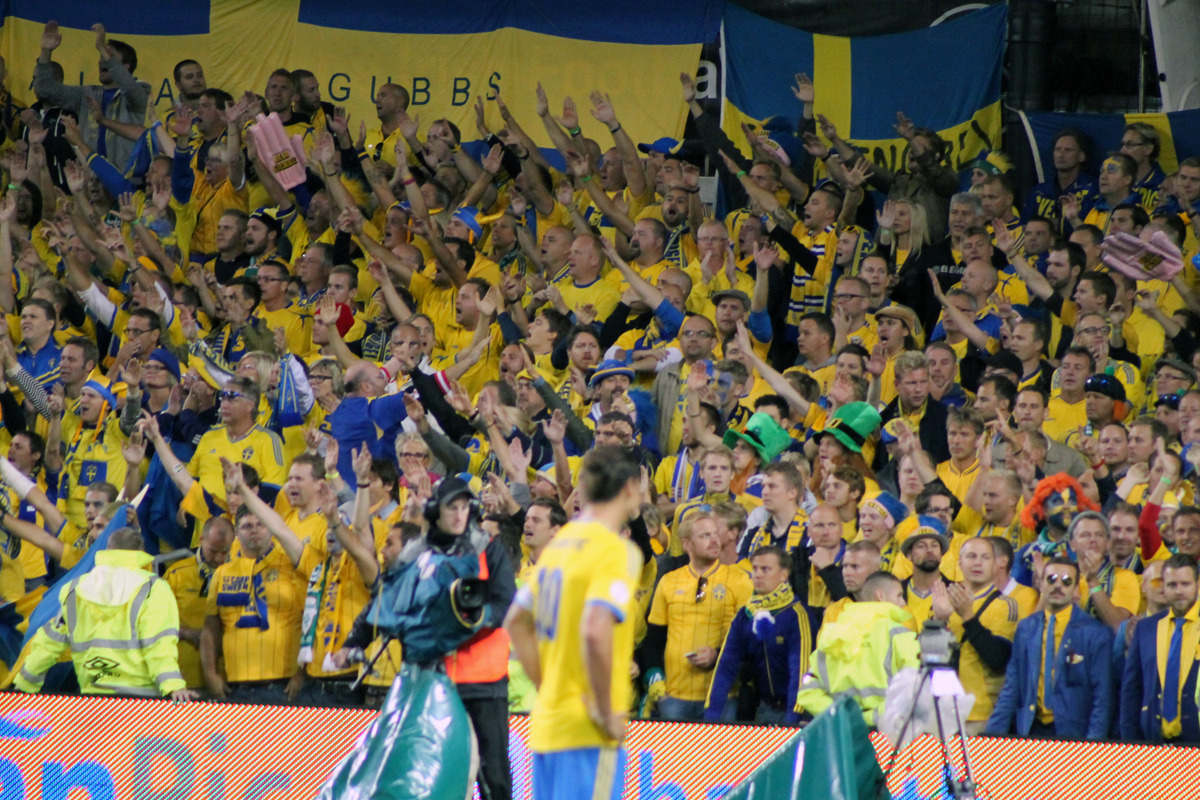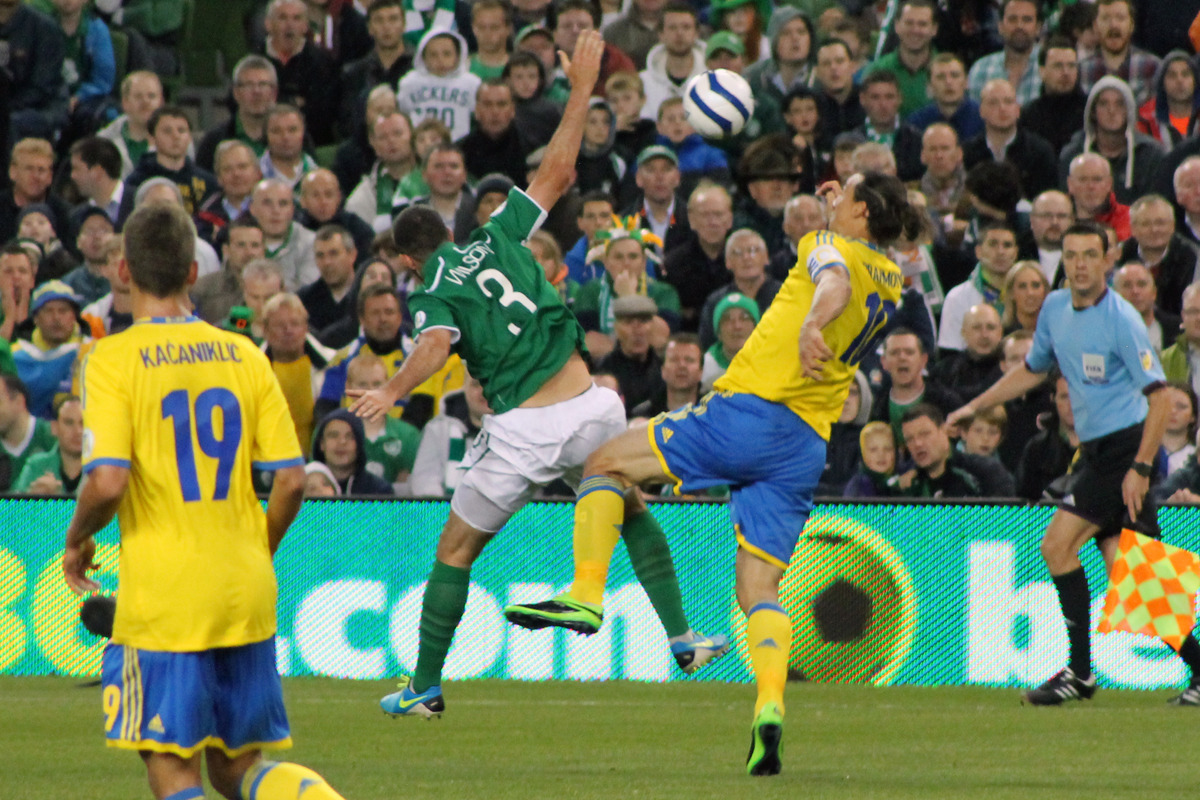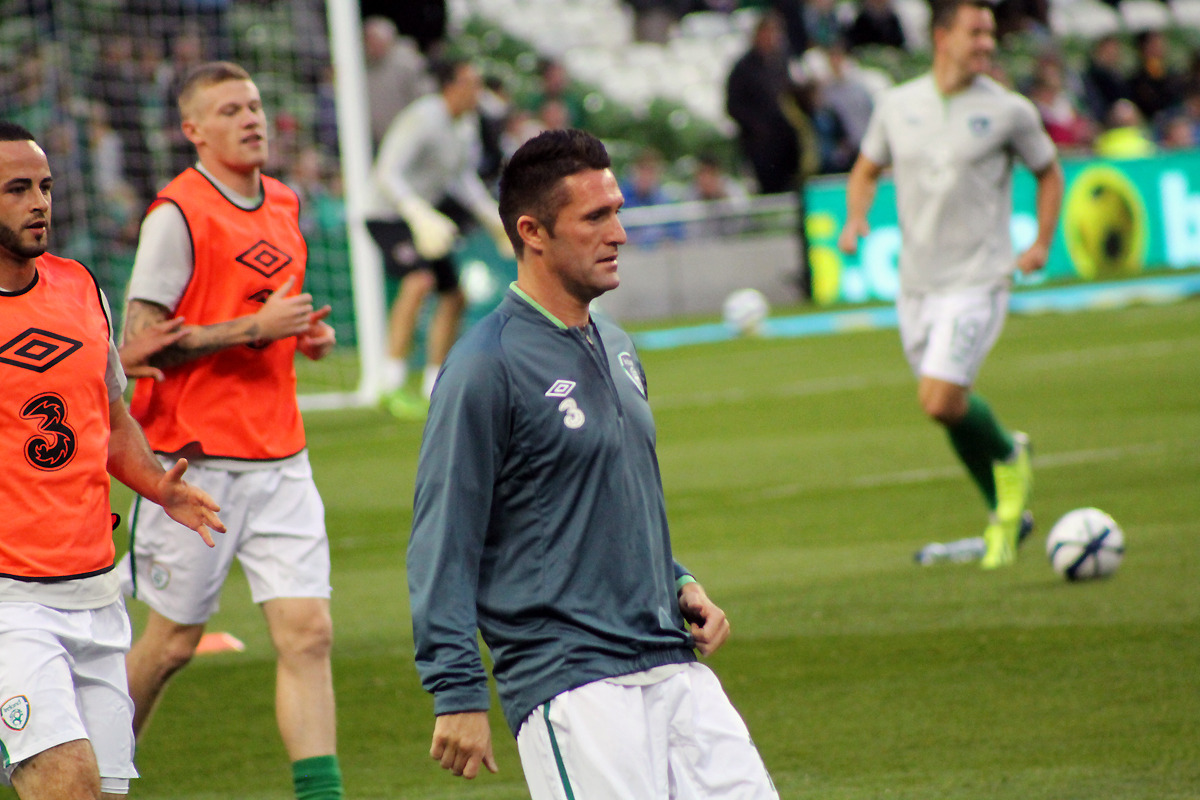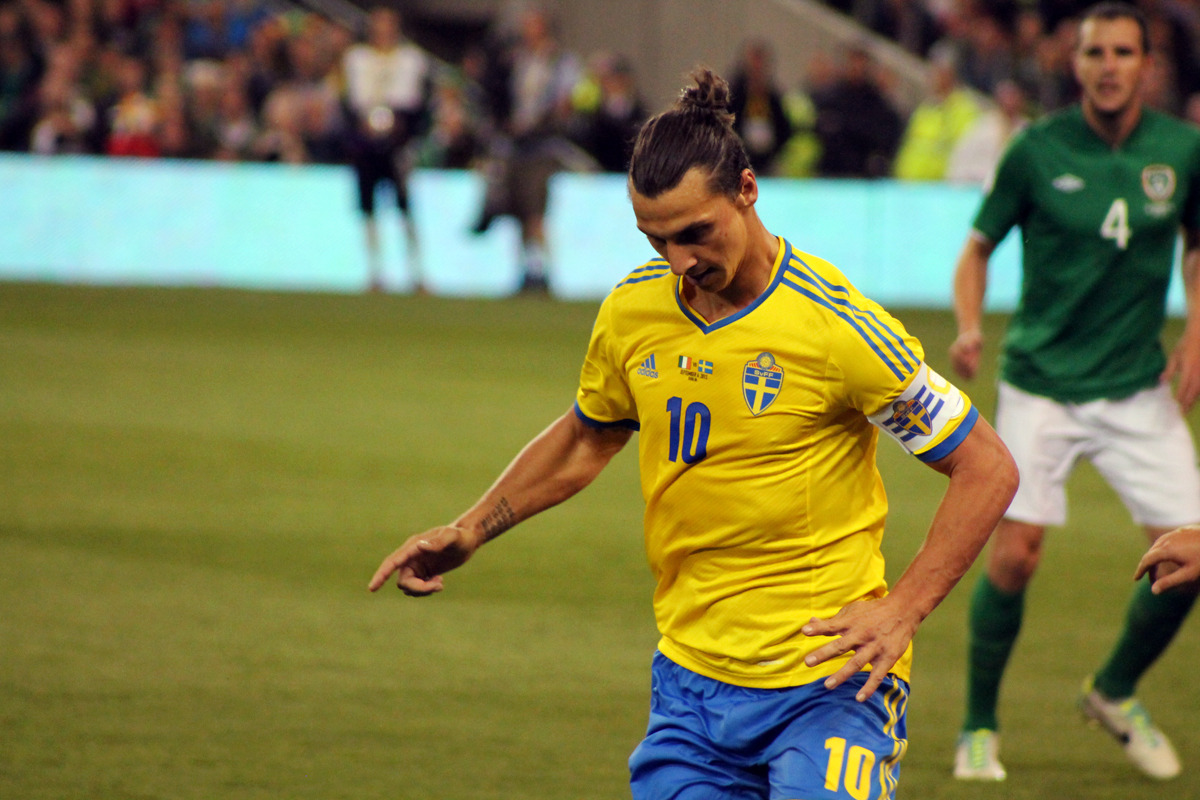When the Swedes invaded (and embraced) Dublin
When the Swedes invaded (and embraced) Dublin

When the Swedes invaded (and embraced) Dublin
By Anthony Lopopolo, writing from Dublin
The Swedes were everywhere. You could hardly tell that this was Dublin, not Stockholm. They wore the blue and yellow, but they also wore green. The pubs here flew Swedish flags, beacons for the weary travelers looking for a pint. The reason for the occasion, the World Cup qualifier, was always big: Ireland had to win the game against Sweden.
But the people of these two countries greeted each other before the match like old friends, not adversaries. One country simply stood in the way of the other. This wasn’t Bucharest, where riot police had to use tear gas before the game between Hungary and Romania. This wasn’t Belgrade, where Serbia and Croatia played against each other after years of fighting against one another. No, this was celebratory. This was fun.
Some looked upset: About 5,000 Swedes took over the city, after all, and only after the work day ended did the Irish truly reclaim their city. They were hospitable, but the time did come to shut the visitors up.
It was kick-off. Every time the Swedes chanted, the whole of Aviva Stadium roared in response. “Come on you boys in green,” the chorus rang, rising in volume as the crowd repeated it. Robbie Keane, the grandmaster of Irish football, looked mean, determined. He was having none of the Swedes. So he scored his 60th goal in 128 games for the Republic of Ireland. It was a striker’s goal: He chased down a bad pass to the goalkeeper, slipped the ball past him, hit the post, followed the rebound and roofed the opener. It was the moment, after 21 minutes, where fans began to think of the number of goals they’d score, not concede.
The Swedes pushed back. They wanted this city, this stadium again. One goal, via Johan Elmander, and then another. Zlatan Ibrahimovic, standing apart from the field for so long, joined the rush and set up that winning goal.
Before the match, Ibrahimovic frightened Ireland’s assistant coach, Marco Tardelli. They may have lost the battle there. Maybe Ireland played too good of a host. Several times, they gave away the ball Ibrahimovic—a cardinal sin. Then they played the ball backward to go forward. It was all so timid. It was dire. Out of ideas, defender John O’Shea time and again booted the ball up the field, to no one in particular.
Somehow, manager Giovanni Trapattoni thinks the team has done a great job. “Not a good job, a great job,” he told reporters. Indeed, prior to the match, Ireland had only lost two of its past 10 games. Trapattoni did a lot of good things. He led the country to the 2012 European Championships. He cut the multi-million-dollar debt of the FAI. Under Trapattoni, Ireland even went unbeaten for 14 games. But he does not take enough chances. Everything is too safe. Sweden, ever quicker, did what they pleased on Friday evening and Ireland lost.
The people here just want a chance to see their nation compete on the global stage again, and they deserve it. They lost every game in last year’s Euro, but they loved every minute of it. Ireland have not qualified for the World Cup since 2002, a time of economic prosperity for the country. No coincidence. And now, just emerging from the recession, Ireland could have used another boost in morale. They have to play in Austria and Germany, and they face the task of winning those games. Qualification is unlikely, and there is sadness.
***
The city is quieter today. The Swedes are leaving. The people of Ireland last night, the families and dads and cousins who went to watch a game of football, they all left the stadium disappointed but easy. It is a family thing. It is affordable. They went to the bars and the restaurants in Dublin to continue the evening. No sulking here: Perhaps it is the expectation of losing after so many years of it, or maybe it is the realization that the game is not life, that there is something bigger and better to enjoy. They’re happy with themselves, and they did not even dare to mutter a few unsavoury words to the Swedes. They observed them, jumping up and down and chanting, almost in reverie.
Do not think the visitors did not notice all of this. When Russia came to town in October 2010, for another qualifier, they left with a win and so much more. They celebrated, but they also bought everything in sight. They bought all the green souvenirs on sale. They bought all the tourist sweaters. The Russians left with a great impression of the country. And so are the Swedes.
This piece was written by Anthony Lopopolo, a Senior Writer at AFR. You can follow him on Twitter at @sportscaddy. Comments below please.










